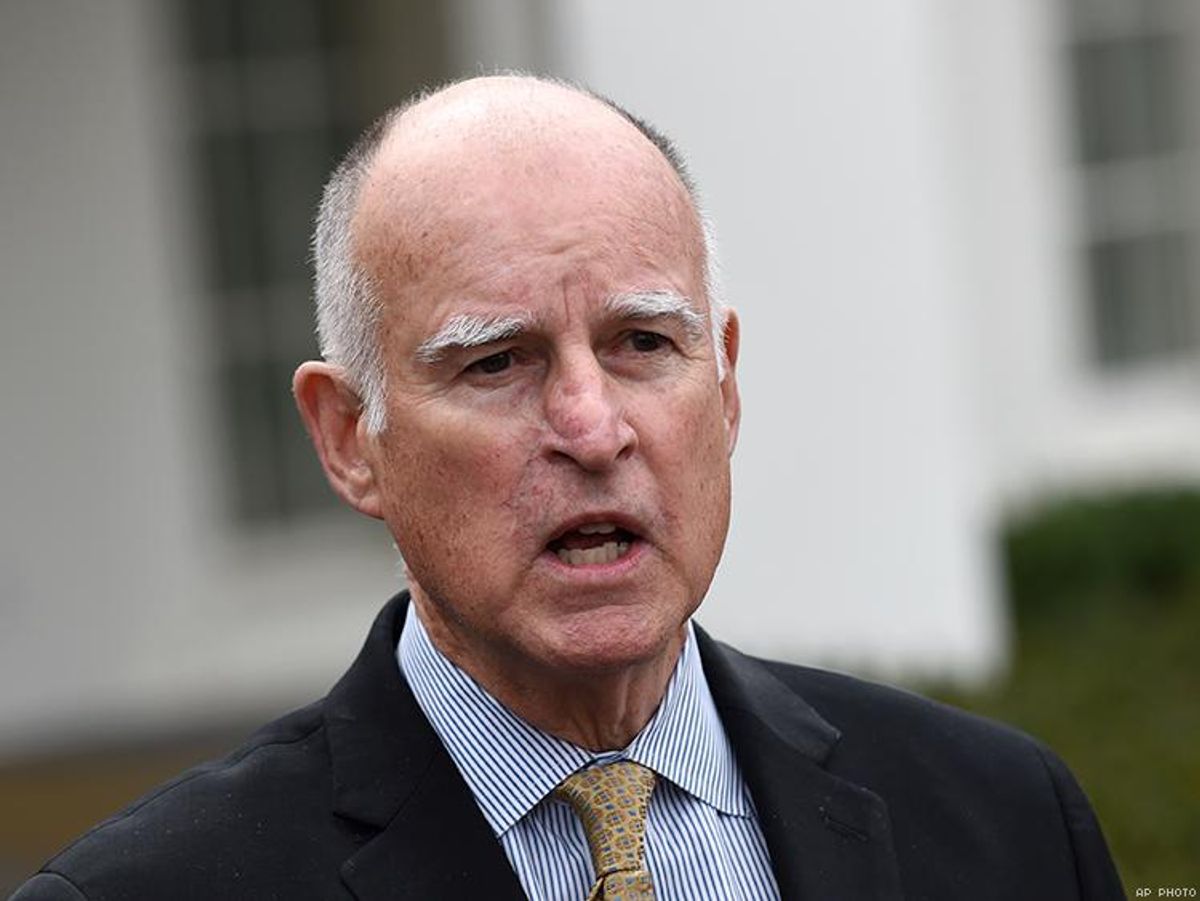California Gov. Jerry Brown signed groundbreaking legislation Friday that provides new protections for transgender foster youth in California.
Authored by State Senator Mark Leno, Senate Bill 731 ensures that all foster youth, both trans and cisgender (nontrans), are placed in safe, accepting homes, according to a statement from Leno's office. The first-of-its-kind law explicitly requires caregivers and state agents to take a young person's gender identity into consideration when placing foster children into supportive facilities. SB 731 goes into effect January 1.
Cosponsored by the National Center for Lesbian Rights, Equality California, and the Transgender Law Center, SB 731 offers much-needed clarity in how the state should offer protection for trans youth in the foster care system. Currently, the Foster Care Bill of Rights provides all fosters the right to fair and equal access to services and freedom from discrimination based on race, religion, disability, sexual orientation, and gender identity. But existing legislation does not provide specific guidance on placing trans and gender-nonconforming youth in supportive homes or gender-segregated housing that accords with the young person's lived identity. For the first time in U.S. legislative history, SB 731 provides that guidance.
"Young people have a better opportunity to thrive in situations where they are fully accepted and supported for who they are," Leno said in the statement. "Entering the foster care system is challenging for all youth, but it can actually be damaging for young people whose identities are not affirmed by their caregivers and peers."
Advocates have long argued for reform in the treatment of gender-variant youth in foster care. Four years ago, a pioneering report from the NCLR and the Sylvia Rivera Law Project, titled "A Place of Respect: A Guide for Group Care Facilities Serving Transgender and Gender Non-conforming Youth," comprehensively outlined the struggles of trans fosters and offered comprehensive guidance for the treatment and placement of transgender and gender-nonconforming youth in foster homes, group care facilities, detention centers, correctional facilities, and group homes. This report stands as a critical framework for safe, healthy, affirmative, and inclusive policies for orphaned trans youth.
In "Representing Transgender Youth: Learning From Mae's Journey," an article in Better Lawyering from the American Bar Association, Garry Bevel uses the journey of a pseudonymous trans foster youth named Mae to provide a case study for reforming the rights of gender-variant fosters. Bevel discusses the crucial role that trans-affirmative placement plays within the health of a transgender foster child, especially regarding acceptance of the child's expressed gender identity. Bevel urges foster caregivers as well as caseworkers to become more effective advocates by engaging proactively with schools and health providers to ensure that everyone in a trans child's life is on board with inclusive treatment. Many of these recommendations have now become part of SB 731.
"Children are placed in foster homes to remove them from dangerous situations and keep them safe," Equality California executive director Rick Zbur said in a statement. "Too often, transgender kids are placed into home situations that are even more hostile than the ones they left. This law is simple common sense and will help ensure that vulnerable children are kept safe."
Last Wednesday the California governor signed four other pieces of pro-LGBT legislation into law. These include include a first-in-the-nation bill that requires that companies doing significant business with the state provide the same benefits to their transgender employees that cisgender workers receive. Another updates the laws governing assisted reproduction in ways that will benefit LGBT Californians. A third one provides resources and information to aid teachers in identifying and assisting LGBT students in need of support in dealing with bullying or lack of social acceptance. Finally, the LGBT Disparities Reduction Act allows state agencies that oversee public health to collect voluntarily shared data on the sexual orientation and gender identity of the people they serve, just as they collect other types of demographic data; if the agencies see significant health disparities related to these characteristics, those disparities must be reported to legislators and the public.
The previous day, the governor had signed a bill providing for LGBT-inclusive sex education. In total, this session he has signed all eight bills sponsored by Equality California.


















































































